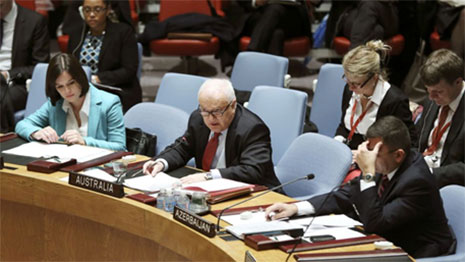The rise of Daesh (also known as ISIL) in Syria and its move into northern Iraq in 2014 dramatically increased the Security Council's focus on the evolving terrorist threat. The issue of foreign terrorist fighters became an important theme in light of the unprecedented flow of fighters and the growth of facilitation networks fuelling conflicts in across many parts of north Africa and the Middle East and the potential repercussions for our own region. It also directly engaged Australia's interests, noting that foreign fighters have the capacity to return and increase the threat of home-grown terrorist attacks.
Australia worked diligently during its term to strengthen the Council's role in combatting international terrorism. During our 2014 Presidency, we also led negotiations to establish an action plan to accelerate the implementation of new obligations on countering terrorism and disrupting funding to Daesh and the Al-Nusrah Front contained in UNSC Resolutions 2170 and 2178. We also encouraged a focus on emerging challenges such as countering violent extremism, internet radicalisation and recruitment.
We led the Security Council's Al-Qaida sanctions committee, leading efforts to reshape understanding of sanctions and using the Al-Qaida sanctions regime as a serious enforcement and counter-terrorism tool. We also worked very closely with Nigeria to achieve the designation of the militant Islamist group, Boko Haram.
Australia strongly supported the UK in its efforts to reach agreement on UNSC Resolution 2133 on kidnapping for ransom by terrorists, which strengthened the international norm against the payment of ransoms.
Find out more:


